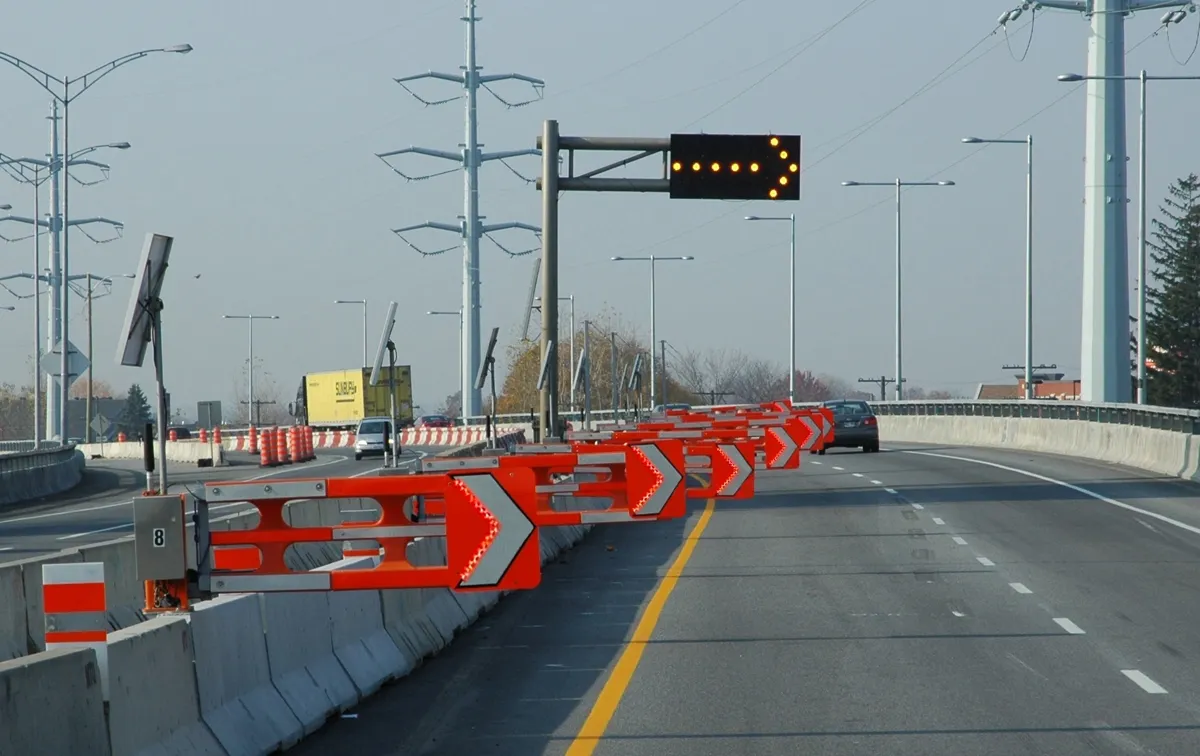Canadian company 2303 Versilis is introducing the SwiftGate automated lane closure system. This is said to be a safer and more efficient alternative for hazardous, time-consuming and costly lane closure operations in both permanent and temporary applications. The remotely controlled SwiftGate system comprises a series of easily installed modules that are solar-powered and completely independent of any wiring for ease of installation or relocation. Each module is made of a pivoting gate or sign, a solar panel and a control box, while gates can vary in length and can be adapted with traffic signs and/or flashing lights. The SwiftGate system can be easily activated with an RF unit, cellular phone, or a web-based application. When activated, the system creates a continuous obstacle line and is more effective than conventional delineation markers like barrels and cones. The SwiftGate system has been fully tested to US standards and is accepted by the FHWA for use on the Federal Highway System.

